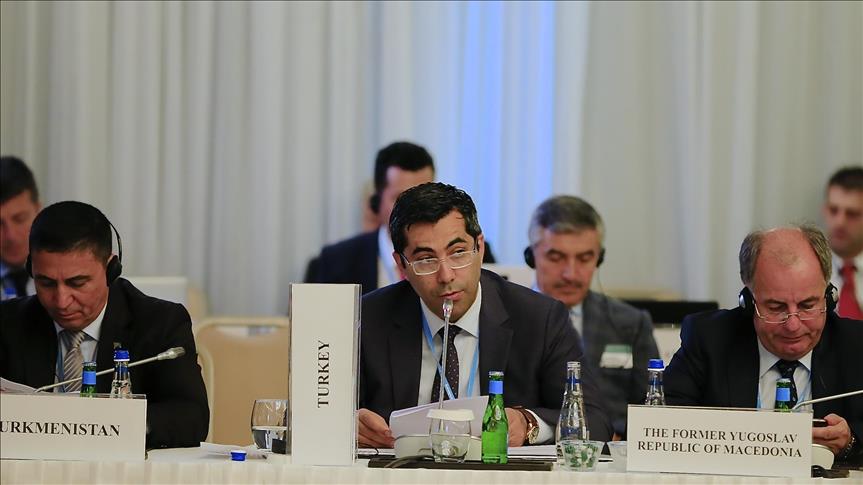 ( Mustafa Çiftçi - Anadolu Agency )
( Mustafa Çiftçi - Anadolu Agency )
ANTALYA, Turkey
Pulses bear multiple economic and environmental benefits for the countries of Europe and Central Asia, according to experts at the Food and Agriculture Organization’s (FAO) conference in Antalya.
Delegates from 53 countries in the UN FAO Regional Conference for Europe in the Mediterranean resort city of Antalya Thursday discussed the multiple benefits of pulses, which are being promoted this year through the International Year of Pulses, instigated by the FAO.
Delegates agreed that an increase in the production of protein-rich pulses such as lentils, chickpeas and other varieties, could help feed the region and the world, as global population is expected to surpass 10 billion by 2050.
According to FAO, the highest consumers of pulses in the region, which stretches from the Atlantic coast of Western Europe to Russia’s Pacific shores, are Turkey, Serbia, Spain, Israel. Very low production and consumption rates have been seen in the Central Asian countries.
In the region’s developing economies, pulses are cultivated in marginal zones and not widely used for commercial purposes, according to FAO's latest estimates.
"Limited research, lack of technology and agricultural policies that tend to favour cereals are among the reasons that pulses are not more widely grown or consumed in the region," the FAO's conference paper said.
- Poverty remains an issue for Eastern Europe and Central Asia
In the region, the prevalence of poverty is low in most of the European countries, but remains an issue for Eastern Europe and Central Asia, particularly in rural areas
Delegates pointed out that small farms in the region needed special attention, especially in Central Asia where almost 90 percent of agricultural output is produced by family farms.
"Outright hunger is relatively low in the region, but different forms of malnutrition are an increasing concern in all 53 countries. Micronutrient deficiencies, overweight and obesity are some of the most common forms of malnutrition in the region," the report presented during the conference said.
"Development of the agriculture sector can contribute to ensuring employment, equal wages and decent living conditions for agricultural workers in those countries," the paper also added.
The conference is jointly organized by the Turkish government and the FAO and it will continue on Friday with sessions that will lay down priorities for FAO in the region over the next two years.
Anadolu Agency website contains only a portion of the news stories offered to subscribers in the AA News Broadcasting System (HAS), and in summarized form. Please contact us for subscription options.

